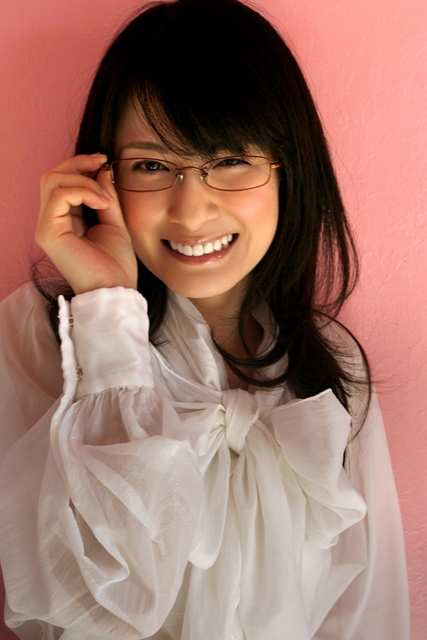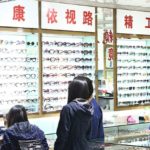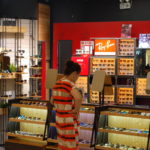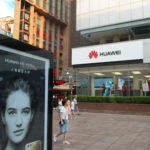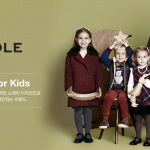Insight of the Eyewear Market in China
Eyewear Market in China. The glasses are nowadays perceived as an accessory of fashion, which motivates, consumers, to buy multiple products from eyewear, to replace more frequently, and to trade up to more fashionable or better quality options. A large population has myopia, in particular among young consumers. China has been gripped by a record rise in myopia, today up to 90% of the Chinese population are short-sighted while 60 years ago, this number only reach 10 to 20%. The rate of myopia in adolescents and students continues to record strong growth in 2015, due to important hours of classes in schools as well as the excessive use of electronic devices, such as computers, tablets and smartphones. This constantly growing myopic population in China largely supports the sustainable growth of demand by consumers for glasses and contact lenses. With consideration of a better grooming, a growing number of consumers have opted for contact lenses, thus promoting the development of this category.
 Overview the Eyewear Market in China
Overview the Eyewear Market in China
The growth of the glasses has decreased in 2015, the value of eyewear has experienced low growth in the same year, due to the economic slowdown in China. Furthermore, the policy against corruption set up by the central Government in China since 2012 continues to operate in the market, a strong threat to sales of luxury eyewear, including sales of high-end eyeglass frames, resulting in slower value growth in 2015. Despite this negative factor, the growing trend of consumption of China, supported by rising disposable incomes, glasses-free brands products.Increase the rate of high myopia has also led the growth of the glasses.
The regular consumer demand is expected over the forecast period. The Sunglasses have also recorded a growth of healthy and stable value in real terms in recent years, supported by demand for regular consumption of the rate of myopia increasing in China. Approximately, a quarter of the Chinese population, 300 million people, wear glasses. The Chinese market eyewear sells more than 50 million pairs annually, nearly 20 billion yuan.
The residents of small towns, buy new glasses once every three or four years while those in the cities change approximately every two years. Starting on this basis, the annual demand in the central market pairs of sunglasses is about 50 million of pairs, not to mention the sunglasses or goggles professional far exceeds.
International Players Leads to a Fragmented Market
The eyewear market is highly fragmented in China, mainly because of the barriers to entry for the manufacturers, including eyeglass frames, spectacle lenses, and sunglasses. As a result, a large number of local brands is available in shows, providing products to value added with low prices to attract massive consumers who are price sensitive. However, multinational companies still manage to direct the fragmented markets in contact lenses and glasses, thanks to the strong desire of consumers for the high-end products in China. Consumers are increasingly aware of brands with technology improved and better quality.
The Chinese market eyewear is highly segmented. In most, factories of eyewear, the product is shipped to the plant sales division and the price is rapidly stimulated by at least 5 to 12%. Generally, the goods go through three or four wholesalers before reaching the retailer, and the price is thus increased by at least 20% for each transaction. But the greatest benefit is at the level of the detail. Best brand name, the more money is made, and benefits of retail sales can reach 50 to 300%. In addition, Healthy growth has been forecast for the Chinese market of eyeglasses in 2018. It will be headed by the continued growth of the population who have myopia or hyperopia.
The Principal Distribution Channel
The Optical stores continue to dominate while the internet flies off of retail. The Optical stores remained the main distribution channel dominant on the market for glasses in China in 2015, with the range of point of sale and brand portfolios. The optical stores represent the most important distribution channel for glasses and contact lenses. Consumers prefer to buy quality products and true brands in optical stores. In addition, optical stores provide a physical shopping as well as a professional experience service of optometry, that consumers can easily and directly seek to recommendations and information of the product from the salespersons in these stores.
On the other hand, retail by the internet is experiencing robust growth of glasses on the market, in particular in contact lenses in 2015, due to discounts on purchases offered by retailers online and home-delivery service practice. The optical shop network is growing rapidly, covering geographical areas broader and Jersey a wide range of eyewear products. Indeed, some optical stores have even set up their own official online shops on Tmall.com, which is one of the largest in China B2C platform.
On the other hand, it is the opposite situation for contact lenses compared to glasses lenses. In contact lenses, six major players hold almost 90% of the total sales in China. Despite the fact that these actors tend to focus on different areas and also have minor differences in price, competition remains very rough in China, with intense activity in the development of new products, advertising, and promotion.
The eyewear sector is highly fragmented with a large number of small brands and manufacturers. the main actors are activated to consolidate their positions, mainly by the expansion of the network building and the original cast.
To know more about China’s market, follow us on our Social Media or contact us at dx@daxueconsulting.com


